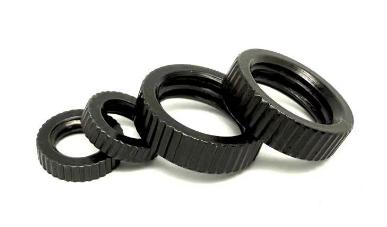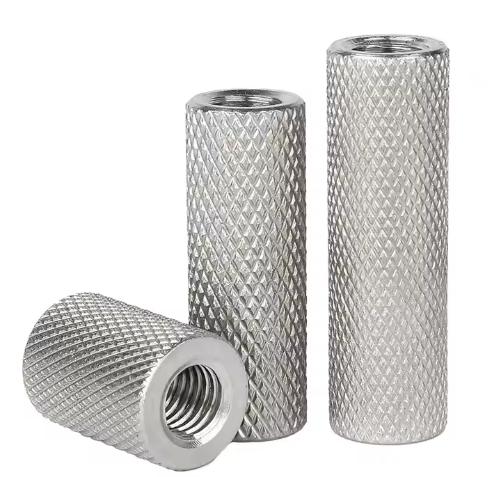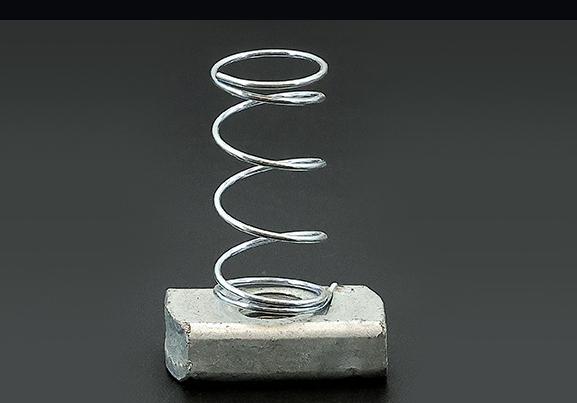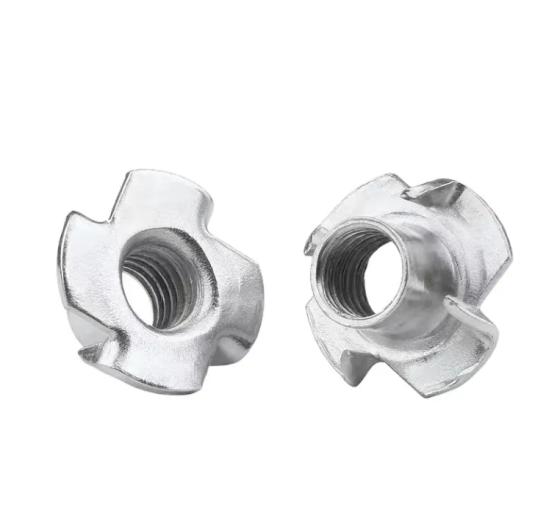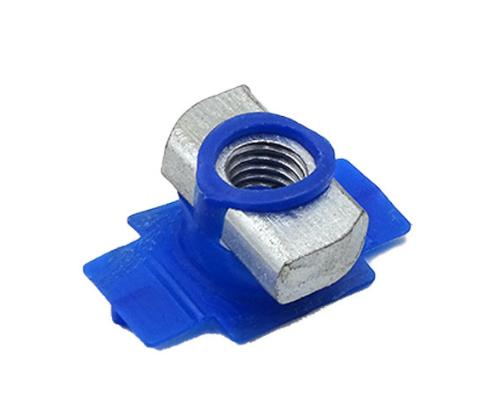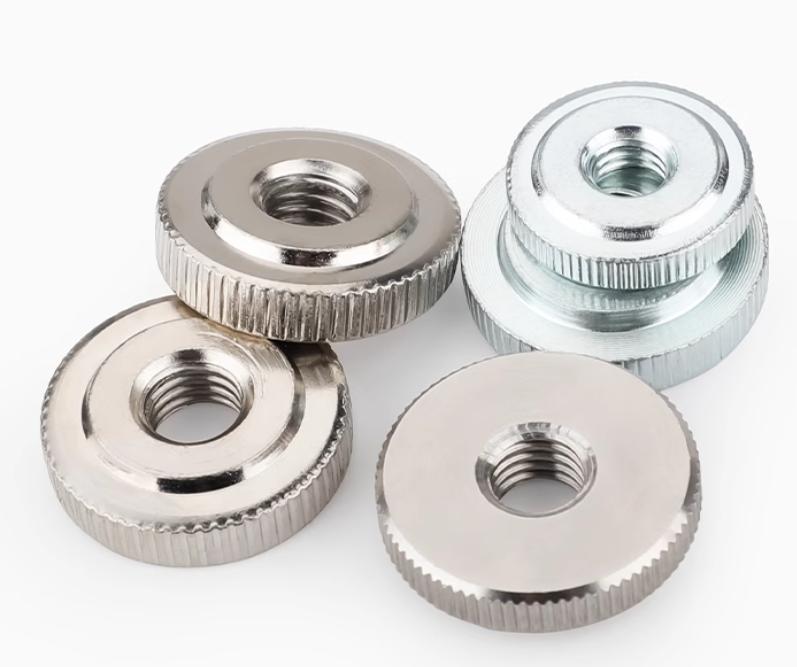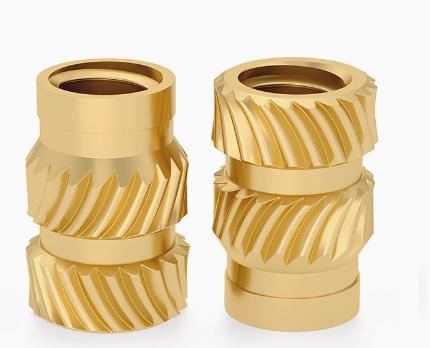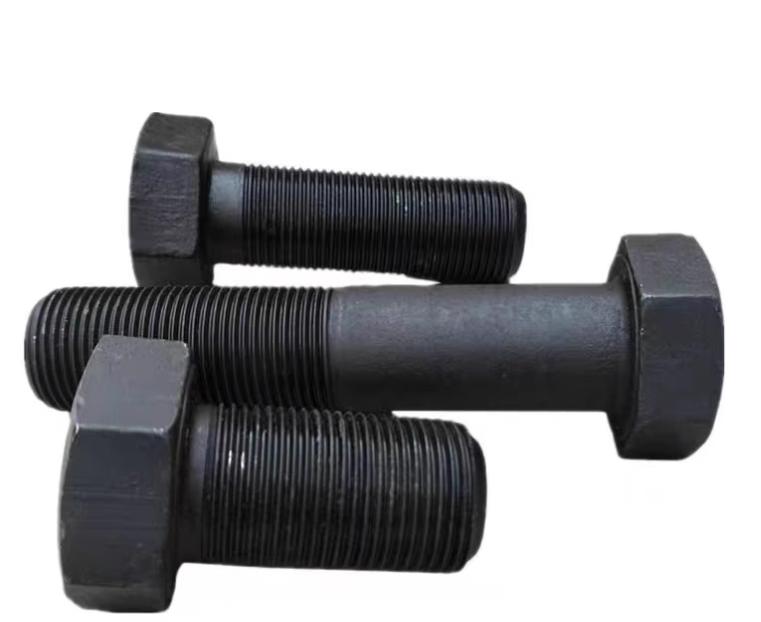Anchor Bolts vs. Expansion Bolts: What are the Differences
The world of construction and DIY projects relies heavily on secure connections. Whether you’re hanging shelves, installing cabinets, or securing heavy machinery, using the appropriate fasteners is crucial for ensuring stability and preventing failures. Anchor bolts play a vital role in achieving these secure connections, especially when dealing with solid materials like concrete, brick, or masonry. However, within the vast category of anchor bolts, there exists a specific type known as the expansion bolt. Understanding the distinction between anchor bolts and expansion bolts is essential for selecting the most suitable fastener for your needs.

What are Anchor Bolts?
Anchor bolts are specialized hardware designed for a specific purpose: creating a strong and dependable connection between an object and a solid base material. These base materials are typically concrete, brick, or masonry – the sturdy backbones of many construction projects.
Unlike regular bolts used for wood or metal, anchor bolts excel at gripping these solid materials. This secure hold makes them essential for various applications in construction and renovation. From anchoring heavy machinery in industrial settings to installing cabinets in kitchens and bathrooms, anchor bolts play a critical role in ensuring stability and safety.

There are several varieties of anchor bolts available, each with its own design and installation method. Here’s a breakdown of some of the most common types:
- Wedge Anchors: These anchors consist of two key parts: a slotted sleeve that is pre-installed in the drilled hole, and a tapered wedge. As the bolt is tightened, it drives the wedge deeper into the sleeve. This action forces the sleeve to expand and creates a tight grip against the inner wall of the drilled hole.
- Sleeve Anchors: Similar to wedge anchors, sleeve anchors also utilize a pre-drilled hole and a sleeve. However, instead of a separate wedge, sleeve anchors have a secondary sleeve or wedge segment inside the main sleeve. Tightening the bolt expands this inner component, creating friction between the anchor and the surrounding concrete or masonry.
- Chemical Anchors: Unlike the mechanical fastening achieved by wedge and sleeve anchors, chemical anchors take a different approach. They rely on a special resin adhesive. This adhesive is injected into the pre-drilled hole, and then the anchor bolt is inserted. The resin cures and hardens, essentially gluing the bolt to the base material. This creates a very strong and permanent bond, making chemical anchors ideal for high-load applications.
Choosing the right anchor bolt depends on several factors. The type of base material (concrete, brick, etc.), the weight the bolt needs to support (load capacity), and the desired level of permanence (removable vs. permanent) all play a role in selecting the most suitable anchor bolt for the job.
What are Expansion Bolts?
Expansion bolts are a specific type of anchor bolt that relies on a mechanical wedging mechanism to create a secure hold in a pre-drilled hole. Unlike chemical anchors that use a resin adhesive to bond to the base material, expansion bolts achieve their grip through friction. While there are variations in design, the core principle remains consistent:
- Pre-drilled Hole: The first step involves drilling a precise hole in the solid base material (concrete, brick, masonry). The hole diameter needs to match the specific size of the chosen expansion bolt.
- Expansion Bolt Insertion: The expansion bolt is then inserted into the drilled hole. It typically consists of a sleeve or anchor body and a bolt or screw threaded through it.
- Tightening the Bolt: As the bolt or screw is tightened, a wedging element within the expansion bolt comes into play. This wedge can be a separate piece or an internal component of the sleeve itself. Tightening creates a driving force that pushes the wedge deeper into the sleeve.
- Frictional Grip: The key function of the wedge is to expand the sleeve. As the wedge expands, it exerts pressure against the inner wall of the drilled hole. This pressure creates a frictional force between the expansion bolt and the surrounding concrete, brick, or masonry. This frictional grip holds the object securely in place.

There are several common types of expansion bolts, each with a slight variation on this core principle:
- Wedge-Type Expansion Bolts: Similar to wedge anchors, these utilize a slotted sleeve and a separate tapered wedge. Tightening the bolt drives the wedge deeper, forcing the sleeve to expand and creating friction within the hole.
- Sleeve-Type Expansion Bolts: These function similarly to sleeve anchors as well. They use a hollow sleeve with a separate wedge or sleeve segment inside. Tightening the bolt expands this inner component, generating friction between the anchor and the surrounding material.
- Hammer Drill Expansion Bolts: Designed specifically for use with a hammer drill, these anchors feature a threaded section that expands as the bolt is driven in with a hammering action. This hammering action forces the threaded section to expand and grip the inner wall of the drilled hole.
Key Differences Between Anchor Bolts and Expansion Bolts
While all expansion bolts are anchor bolts, not all anchor bolts are expansion bolts. Here’s a table summarizing the key differences:
| Feature | Expansion Bolts | Anchor Bolts (General) |
| Type | Specific type of anchor bolt | Broad category encompassing various designs |
| Mechanism | Relies on friction created by expansion | Can utilize friction (expansion), adhesion (chemical anchors), or a combination |
| Installation | Requires a pre-drilled hole and tightening of bolt/screw | Installation method varies depending on the specific type of anchor |
| Holding Capacity | Varies depending on type and size, generally good for moderate to high loads | Holding capacity varies widely depending on type, material, and installation |
| Applications | Suitable for concrete, brick, and some masonry applications | Suitable for various base materials including concrete, brick, masonry |

Tips for Choosing the Right Fastener
Choosing the most suitable anchor bolt for your project isn’t a one-size-fits-all situation. To ensure a secure and successful installation, several factors require careful consideration:
- Base Material: The type of solid material you’re anchoring into is crucial. Expansion bolts perform best in solid bases like concrete, brick, or masonry. If you’re dealing with cracked concrete, hollow materials like hollow-core concrete blocks, or other challenging substrates, consulting a professional about potentially more suitable anchor types like chemical anchors might be recommended.
- Load Capacity: Don’t underestimate the weight the anchor needs to support. Each expansion bolt comes with a specific load capacity rating, which indicates the maximum weight it can safely hold. Carefully assess the weight of the object you’re securing and choose an expansion bolt with a load capacity exceeding that weight to ensure a safe and reliable connection.
- Ease of Installation: Expansion bolts are generally known for their relatively simple and fast installation process compared to some other anchor bolt types. They typically require just drilling a precise hole and tightening the bolt. If speed and ease of installation are priorities for your project, expansion bolts are a strong contender.
- Removable vs. Permanent Needs: Consider whether you might need to remove the object you’re anchoring in the future. Expansion bolts offer an advantage over permanent solutions like chemical anchors in such scenarios. If removability is a potential requirement, expansion bolts provide more flexibility.
- Environmental Conditions: While expansion bolts function well in most dry and moderate temperature environments, extreme weather conditions or areas prone to moisture or chemicals might necessitate a different approach. For such situations, consulting a professional about potentially using anchor types with better suited corrosion resistance, like stainless steel expansion bolts, or exploring chemical anchors that might be more appropriate might be advisable.

Conclusion
The world of anchor bolts offers a variety of options to suit different project needs. Understanding the key differences between expansion bolts and other anchor types empowers you to make informed decisions. When dealing with solid base materials like concrete or brick, and the application requires a strong, yet potentially removable, connection, expansion bolts often emerge as the ideal choice. Their ease of installation, affordability, and wide range of load capacities make them a versatile solution for numerous construction and DIY projects. Remember, for crucial applications or situations with specific environmental considerations, consulting with a professional for expert advice on choosing the most suitable anchor bolt is always recommended.

